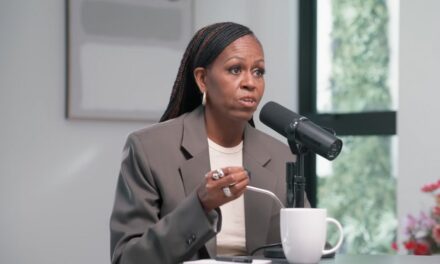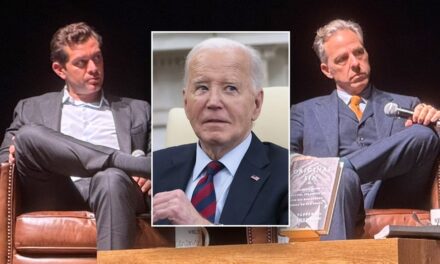In a recent political discourse that has taken the New York City landscape by storm, Congressman Hakeem Jeffries has expressed the necessity for local political candidate Suraj Mamdani to provide clarification regarding his views on a contentious phrase that has emerged within the discourse: “globalize the intifada.” The phrase has raised eyebrows due to its historical and political connotations related to the Israeli-Palestinian conflict, and has attracted considerable attention in light of the current national political climate.
Suraj Mamdani, a progressive candidate vying for a significant post within the New York City political arena, recently used the phrase in a social media post, which has since become a focal point of debate. Jeffries, representing a significant congressional district and a well-known figure in the Democratic Party, has urged Mamdani to take a definitive stance on a subject that holds substantial implications for community relations and national sentiments regarding international conflicts.
In the context of growing political polarization and heightened sensitivity surrounding issues related to Israel and Palestine, Jeffries’s call for clarification is seen as both a response to potential political backlash as well as an appeal for responsible political discourse. Critics have argued that invoking the phrase “globalize the intifada” could incite further division amongst communities, particularly in multicultural settings like New York City, where diverse views on international conflicts often collide.
Jeffries articulated his concerns in remarks addressing reporters, emphasizing the need for Mamdani to elucidate his statements and ensure that his messaging aligns with the values of inclusivity and community solidarity. He described the usage of such charged language as “divisive,” suggesting that it may escalate tensions rather than foster vital dialogue necessary for community cohesion.
In light of this, political analysts are analyzing the potential consequences of Mamdani’s comments on his campaign, which is predicated on a platform of progressive values and social justice initiatives. Mamdani, who has presented himself as a champion of the marginalized, now finds himself at a crossroads where his branding could either be fortified or jeopardized by his response to Jeffries’s challenge.
As the conversation unfolds, supporters of both politicians are weighing in, with some arguing that Mamdani’s original intentions were misinterpreted, while others echo Jeffries’s sentiment, fearing that inflammatory rhetoric could alienate essential voting blocs ahead of the upcoming election.
New York City’s political landscape is known for its vibrant exchanges and debates, and this incident is poised to contribute to the dialogue surrounding how local candidates engage with complex, international sociopolitical issues. As the campaign progresses, observers will be keeping a close eye on Mamdani’s response and how it shapes voter perceptions moving forward.
Moreover, the context of Jeffries’s call for clarity is pertinent. Leaders across the nation are realizing the significant impact that rhetoric can have, especially in moments marked by social unrest and civil rights movements. The recent surge in activism related to racial justice and equity in the U.S. has made it imperative for candidates to approach such subjects with precision and care, ensuring that their messages resonate positively within their communities without inciting division.
Amidst this landscape, Mamdani faces pressure not only from established political figures like Jeffries but also from constituents who expect their leaders to address the nuances of complex international issues without resorting to rhetoric that could alienate certain groups. As the campaign trail heats up, understanding the implications of language and its influence on voter sentiment will be essential for candidates aiming to cultivate a broad coalition of support.
This ongoing debate highlights a crucial aspect of modern political campaigning: the increasing scrutiny under which candidates operate in the age of social media. Statements made online, as demonstrated by the controversy surrounding Mamdani, can amplify quickly, capturing the attention of both supporters and skeptics alike. Anyone hoping to secure public office must balance their views on pressing issues with a sensitivity to their wider impacts on community dynamics.
Furthermore, this incident has stirred conversations around the intersection of foreign policy views and local election races. Many in the political arena argue that candidates should ideally distance their campaigns from higher-stakes international conflicts in favor of focusing on local needs and issues that directly impact their constituents. Yet, given the highly interconnected nature of today’s society, where global issues seemingly permeate local discourse, complete detachment may not be feasible for many candidates.
So far, Mamdani has defended his initial statements by arguing that he intends to amplify discussions regarding liberation and justice for oppressed people globally, which resonates with a broad progressive platform. Nevertheless, the challenge lies in ensuring that such messaging motivates solidarity rather than division, especially in a city marked by its rich tapestry of cultures and ethnicities.
Political observers note that how Mamdani navigates the situation could set a precedent for future candidates. In a time when political polarization is prevalent, demonstrating an ability to engage with complex discourse and remain sensitive to community needs could resonate favorably with voters seeking leaders who prioritize constructive dialogue over divisive rhetoric.
In summary, the interactions stemming from Hakeem Jeffries’s appeal for Suraj Mamdani to clarify his position on “globalize the intifada” reflect deeper underlying tensions within the political landscape of New York City and beyond. As the public awaits further comments from Mamdani, the political implications of this incident serve as a reminder of the intricate relationship between local politics and international issues, illustrating that the language used by candidates matters not just in the halls of power but also in the everyday lives of the constituents they serve.
Ultimately, the outcome of this discourse could significantly affect Mamdani’s campaign strategy and shape the broader narrative surrounding local elections in an era where political nuance is increasingly under the microscope. As pressures mount, it remains to be seen how Mamdani will navigate this pivotal moment in his political journey.































